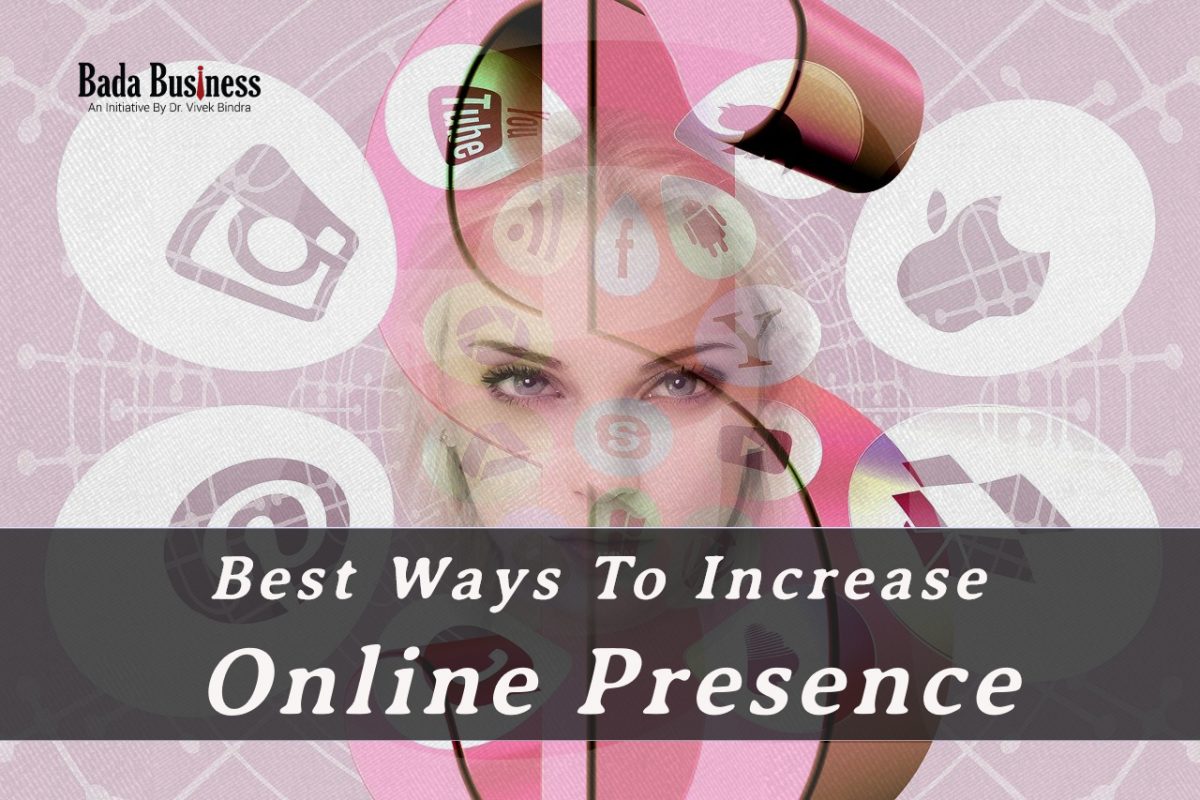Having a strong online presence is vital in today’s digital age. It refers to the visibility and reputation of a company, brand, or individual on the internet. With billions of people using the internet daily, an online presence allows you to reach the audience and connect with potential customers or subscribers around the world. It allows businesses to establish credibility, build brand awareness, engage with customers, and gain competitive advantage.
A strong online presence opens up growth opportunities, improves visibility, and builds trust in an increasingly digital market. Increasing a strong online presence is essential in today’s digital world. It enables businesses to reach a wider audience, engage with customers, and establish credibility.
Why Is Online Presence Important?
Online presence is important for businesses and individuals alike. Here are some key reasons why having a strong online presence is important:
- Visibility:
With billions of people using the internet every day, having an online presence allows you to reach a vast audience. It expands your visibility beyond physical boundaries and enables you to connect with potential customers or followers globally. - 24/7 Availability:
Unlike traditional brick-and-mortar businesses, an online presence allows you to be accessible around the clock. Your website, social media profiles, and other online platforms are always available, providing information and engaging with customers even outside regular business hours. - Brand Building and Awareness:
Building a strong online presence helps in establishing and promoting your brand. Through consistent messaging, visual identity, and valuable content, you can shape your brand’s image, communicate its values, and increase brand awareness among your target audience. - Credibility and Trust:
In the digital age, consumers often research and vet businesses or individuals online before making a purchase or decision. A well-established online presence with a professional website, positive reviews, and engaging content helps build credibility and trust, influencing consumer perceptions and decision-making. - Customer Engagement:
Online platforms provide opportunities for direct and immediate engagement with customers. Social media, email marketing, and other online communication channels allow businesses to interact, respond to inquiries, and address customer concerns in real time. This fosters a sense of connection, builds relationships, and enhances customer satisfaction. - Cost-Effective Marketing:
Online marketing methods, such as social media advertising, search engine optimization (SEO), and email campaigns, are often more cost effective than traditional marketing channels. They allow businesses to target specific demographics, measure campaign performance, and optimize strategies for better results, all within budget constraints. - Data and Insights:
An online presence provides access to valuable data and insights about your audience and their behavior. Web analytics tools, social media metrics, and other analytics platforms offer valuable information on website traffic, user engagement, conversion rates, and customer preferences. These insights help businesses make data-driven decisions and optimize their online strategies. - Competitive Advantage:
In today’s digital landscape, having a strong online presence is often a competitive necessity. Businesses that neglect their online presence risk losing potential customers to competitors who have effectively established themselves online. A robust online presence helps differentiate your brand, stay relevant, and gain a competitive edge in the market.
A strong online presence is important for increasing visibility, brand building, credibility, customer engagement, profitable marketing, data insights, and gaining competitive advantage. It enables businesses and individuals to connect with larger audiences, build relationships, and thrive in the digital age.
Read More: 7 Proven & Tested Habits of the World’s Most Successful Entrepreneurs
10 Proven Steps to Boost Online Presence
Developing a strong online presence requires a multi-faceted approach, encompassing a well-designed website, engaging content, effective SEO, social media engagement, targeted advertising, and ongoing monitoring and optimization.
Here are 10 proven key steps to increase a strong online presence:
- Build a Professional Website:
A well-designed and user-friendly website serves as the foundation of your online presence. Ensure your website reflects your brand identity, is easy to navigate, and provides valuable information to visitors. Optimize it for mobile devices and ensure fast loading times. - Create Compelling Content:
Develop a content strategy that aligns with your target audience’s interests and needs. Create high-quality and engaging content such as blog posts, articles, videos, infographics, and podcasts. Regularly publish new content to keep your website fresh and attract organic traffic. - Embrace Search Engine Optimization (SEO):
Implement SEO techniques to improve your website’s visibility in search engine results. Conduct keyword research to understand what terms your audience uses to search for products or services similar to yours. Optimize your website’s meta tags, headings, URLs, and content to align with relevant keywords. - Engage in Social Media Marketing:
Identify the social media platforms where your target audience is active and create a strong presence there. Share valuable content, engage with your audience, and foster conversations. Leverage social media advertising to reach a broader audience and drive traffic to your website. - Leverage Email Marketing:
Build an email list of interested prospects and customers and regularly communicate with them through targeted email campaigns. Provide valuable content, personalized offers, and updates about your brand to keep them engaged and drive traffic to your website. - Engage in Online Advertising:
Utilize online advertising platforms such as Google Ads, social media ads, and display advertising to increase brand visibility, reach new audiences, and drive traffic to your website. Target specific demographics, interests, and behaviors to maximize the effectiveness of your ads. - Implement Search Engine Marketing (SEM):
Alongside organic SEO efforts, consider investing in search engine marketing. Use paid search ads to appear at the top of search engine results pages for relevant keywords, driving immediate traffic to your website. - Monitor and Analyze Performance:
Regularly monitor and analyze your online presence using web analytics tools. Track website traffic, user behavior, engagement metrics, and conversion rates. Use this data to optimize your online strategies, identify areas for improvement, and make informed decisions. - Encourage Online Reviews and Testimonials:
Actively seek reviews and testimonials from satisfied customers on relevant platforms such as Google My Business, Yelp, and industry-specific review sites. Positive reviews enhance your online reputation and build trust with potential customers. - Engage with Online Communities:
Participate in online forums, industry-specific groups, and social media communities related to your niche. Offer valuable insights, answer questions, and engage in discussions to establish yourself as a trusted expert in your field.
By following these steps, you can boost your brand’s online presence and effectively connect with your target audience.





